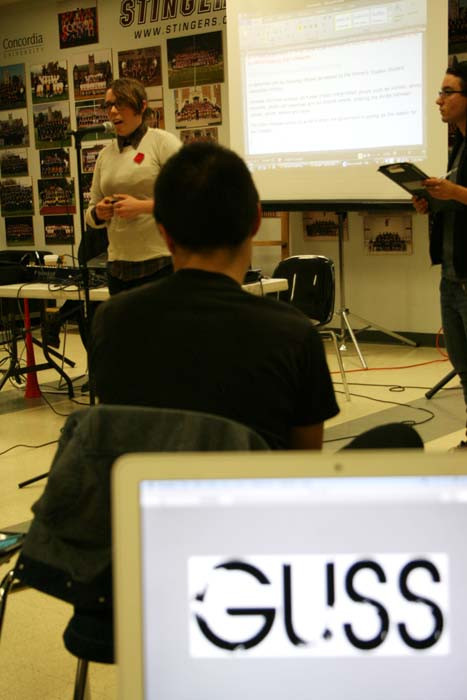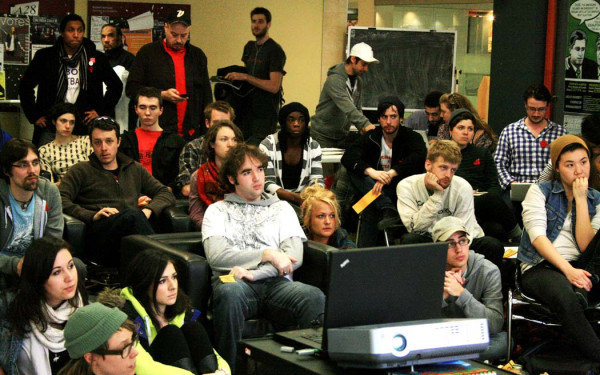GUSS Going Strong
Geo and Enviro Students Vote Strike in GA
Geography and environment students gave the strike a green light Monday night, voting to continue boycotting classes until its next general assembly in a week’s time.
The three-hour Geography Undergraduate Student Society’s general assembly saw 32 voting for the strike and four against it. Fifty people showed up to the meeting that started at 6 p.m., but many didn’t make it through the lengthy proceedings.
GUSS represents approximately 750 students, but quorum is 20 people at its GA’s.
“It’s still over double quorum,” argued urban studies and human environment student Mackenzie Langton. “There’s a lot of people that have been showing support but not backing up that support by voting in the strike committees or in the strike shifts.”
President of GUSS, Andrew Roberts, was frustrated with the lack of people compared to the 100 who turned up for last week’s GA.
“I’m pretty disappointed with the turnout,” said Roberts. “I think the three hours kind of pushed [the amount of people] back. With the CSU elections, and the Concordia wide strike, there’s a lot of stuff going on—this might be getting overshadowed.”
However, Roberts thinks the overwhelming ‘yes’ vote at the GA, Dr. David Greene’s retraction of disciplining picketing students and the fact that Concordia’s decided to shut its doors on March 22, the province-wide day of protest against tuition fees, speaks to the scale of the strike movement.
“There’s 200,000 people in support of the strike, and the actions of people, of the university, Dr. Greene, shows that on a small scale, and a large scale, the pressure is being kept.”
No significant new amendments were passed at the GA. One that was talked about in length during discussion period and ultimately voted down, however, was whether to allow access to technical classes, which are currently being picketed.
Roberts voted against the amendment despite his desire to learn a class like Geographic Information Systems, which requires ample class time and is used widely in the field of geography.
“People are getting tired, and people are getting annoyed, and I want to go to class,” said Roberts. “It’s tough to do this if you’re not learning [in school]. But I think it was clear that people are willing to stick through it.”





_600_375_90_s_c1.jpg)
_600_375_90_s_c1.jpg)
_600_375_90_s_c1.jpg)